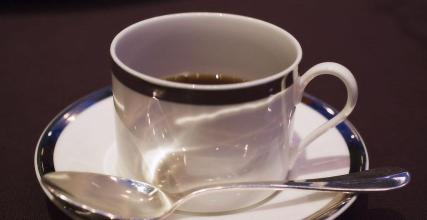Introduction to the regional treatment method of El Salvador Mercedes coffee bean flavor description, grinding scale production
Introduction to the regional treatment method of El Salvador Mercedes coffee bean flavor description, grinding scale production
Salvadoran coffee ranks side by side with Mexico and Guatemala as the producers of Asa and Merdo, and is fighting for the top one or two places in China and the United States with other countries. The highlands of origin are large coffee beans of all sizes, which are fragrant and mild in taste. Like Guatemala and Costa Rica, coffee in El Salvador is graded according to altitude. The higher the altitude, the better the coffee. It is divided into three grades according to elevation: SHB= Highlands, HEC= medium Highlands, and CS= lowlands.
El Salvador's unique high-grade variety Pacamara, Pacamara is a sudden variation of the bourbon species found by Pacas Pacas- in El Salvador and a hybrid with the giant bean Maragogype, a sudden variant of the Tibica species found in Brazil.
The interesting thing about Christmas farm coffee is that its refining method is secret, using mineral-rich hot spring water to process raw coffee beans. The farm is located in fertile volcanic soil and rich in natural hot spring water, so it is all used in raw bean processing; there are many coffee gardens in the world, but this method is rare.
Salvadoran coffee ranks side by side with Mexico and Guatemala as the producers of Asa and Merdo, and is fighting for the top one or two places in China and the United States with other countries. The highlands of origin are large coffee beans of all sizes, which are fragrant and mild in taste. Like Guatemala and Costa Rica, coffee in El Salvador is graded according to altitude. The higher the altitude, the better the coffee. It is divided into three grades according to elevation: SHB (strictly high grown) = highlands, HEC (high grown central) = mid-highlands, and CS (central standard) = lowlands. The best brand is Pipil, which is what the Aztec-Mayan (Aztec-Mayan) called coffee, which has been recognized by the American Organic Certification Society (Organic Certified lnstitut eof America).
In the 1970s, El Salvador produced a record 350000 bags of coffee. With the intensification of the civil war, the coffee industry was in turmoil.
Coffee production in El Salvador was once affected by domestic political instability. In 1992, the parties signed a peace agreement and the civil war was suspended. The coffee industry began to recover.
On the whole, Salvadoran coffee inherits the mild quality of Sino-American coffee, which is soft, slightly sour and has beautiful sweetness. At the same time, it also has its own characteristics: the aromatic taste is slightly sour and very soft; it is pure and has no miscellaneous flavor, and the taste balance is excellent; the smooth feeling like cream chocolate is impressive The lingering feel of the coffee in the mouth gives the coffee a deep taste, with a long aftertaste. The coffee beans from this estate are washed at Mauricio Salaverria's El Divisadero processing plant in Ataco, and then evenly dried in an African elevated trellis with the help of sun and ventilation. Inheriting the career of his parents and grandparents, Mauricio has been associated with coffee since childhood, especially focusing on the characteristics of Salvadoran coffee.

Important Notice :
前街咖啡 FrontStreet Coffee has moved to new addredd:
FrontStreet Coffee Address: 315,Donghua East Road,GuangZhou
Tel:020 38364473
- Prev

El Salvador Coffee Bean Flavor Description Taste Manor Region Processing Method Grinding Scale Variety Introduction
El Salvador Coffee Bean Flavor Description Manor Production Area Processing Method Grinding Scale Variety Introduction Guerrilla warfare greatly disrupted the country's national economy, reducing coffee production from 3.5 million bags in the early 1970s to 2.5 million bags in 1990- 1991. The eastern part of the country was most affected by guerrilla warfare, and many farmers and workers were forced to leave their estates. A shortage of funds caused coffee production to plummet,
- Next

Brazilian Yellow Bourbon Coffee Flavor Description Taste Grind Scale Variety Features Region Introduction
In October 2002, Lula, the candidate of the left-wing party coalition led by the Labor Party, won the election and became the first directly elected left-wing president in Pakistan history. In October 2006, Lula defeated the Social Democratic candidate Alkmin and won re-election. October 2010 Dilma Rousseff wins as Labor Party candidate
Related
- Detailed explanation of Jadeite planting Land in Panamanian Jadeite Manor introduction to the grading system of Jadeite competitive bidding, Red bid, Green bid and Rose Summer
- Story of Coffee planting in Brenka region of Costa Rica Stonehenge Manor anaerobic heavy honey treatment of flavor mouth
- What's on the barrel of Blue Mountain Coffee beans?
- Can American coffee also pull flowers? How to use hot American style to pull out a good-looking pattern?
- Can you make a cold extract with coffee beans? What is the right proportion for cold-extracted coffee formula?
- Indonesian PWN Gold Mandrine Coffee Origin Features Flavor How to Chong? Mandolin coffee is American.
- A brief introduction to the flavor characteristics of Brazilian yellow bourbon coffee beans
- What is the effect of different water quality on the flavor of cold-extracted coffee? What kind of water is best for brewing coffee?
- Why do you think of Rose Summer whenever you mention Panamanian coffee?
- Introduction to the characteristics of authentic blue mountain coffee bean producing areas? What is the CIB Coffee Authority in Jamaica?

